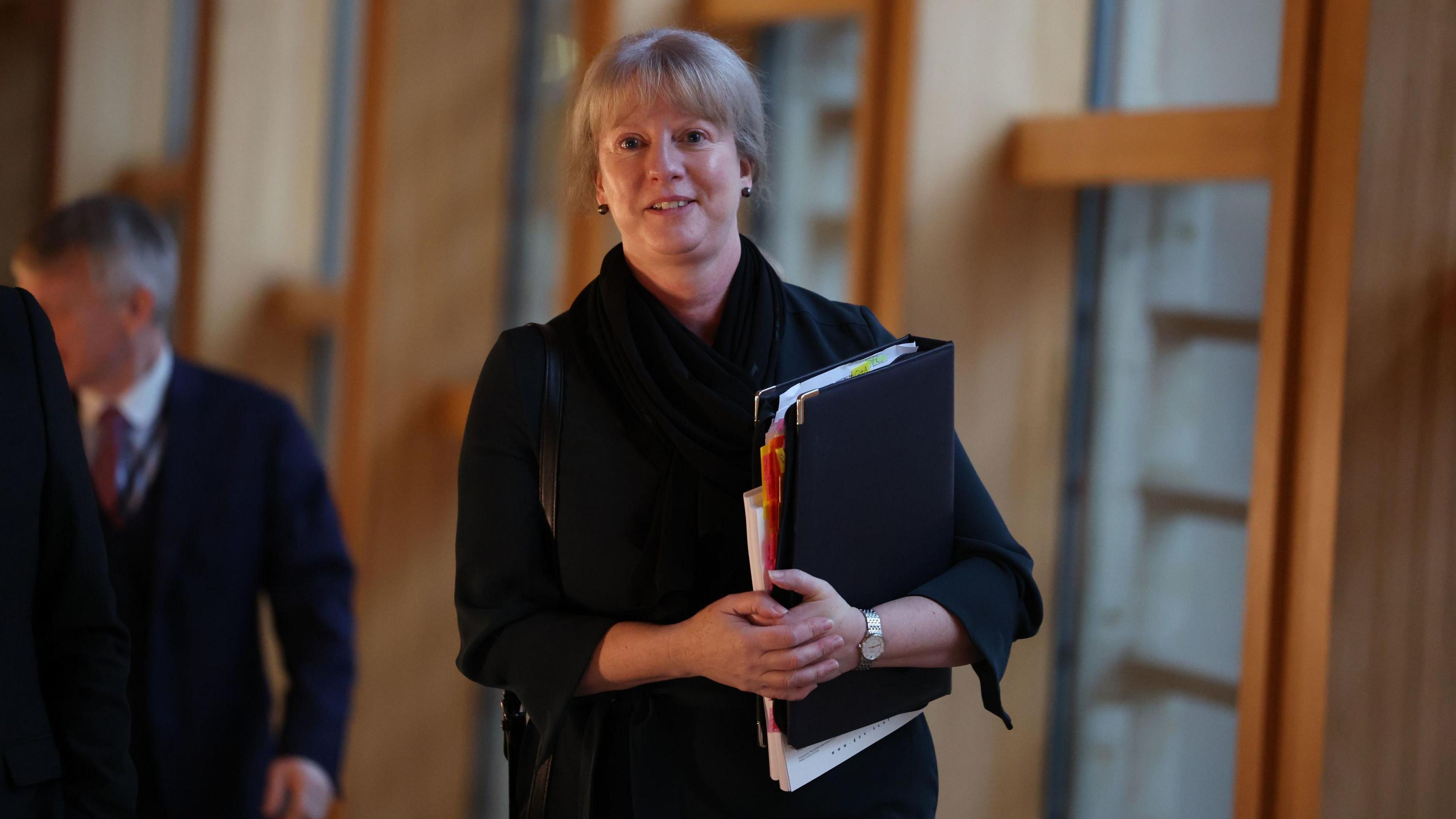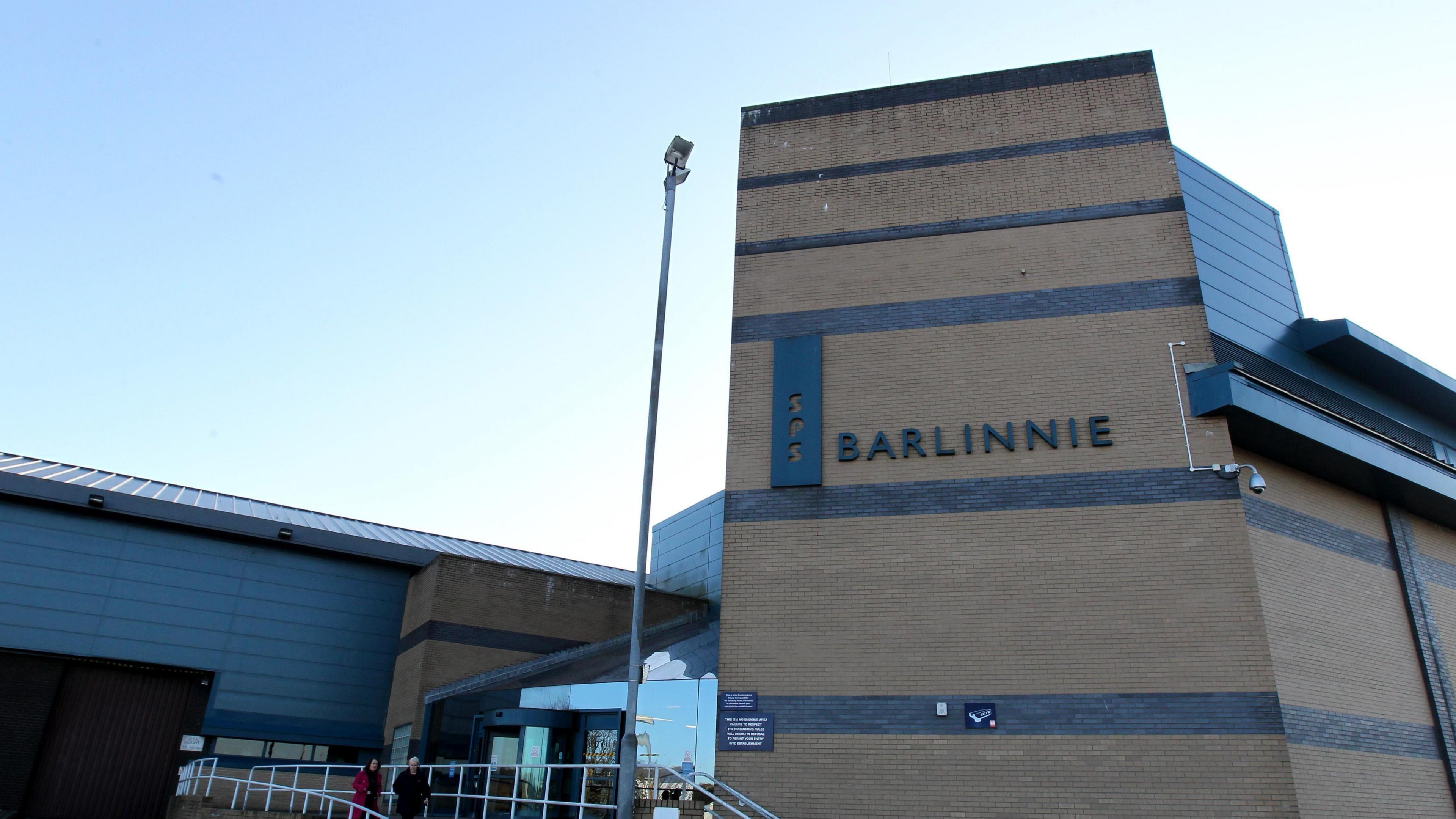Scottish Budget 2025-26: At a glance

- Published
Finance Secretary Shona Robison has announced her tax and spending plans for the next financial year.
She told the Scottish Parliament her proposals were focused on her government's main priority: the eradication of child poverty.
Here is a summary of the main measures.
Tax changes
Income tax rates frozen until 2026.
No new bands for the remainder of this parliament.
Basic and intermediate rate thresholds will increase by 3.5%.
These will remain at that level for the rest of this parliament.
Benefits
Investment to allow the mitigation of the two-child cap from 2026.
Funding for universal winter heating payments for older people.
£6.9bn total investment in social security including the Scottish Child Payment.
Almost £800m more in social security benefits in 2025-26
NHS and social care

Ms Robison promised a record investment in the NHS
£2bn overall increase in frontline NHS spending, taking overall health and social care investment to £21bn.
£200m invested in plan to reduce waiting times and improve capacity, with a vow to make the system more efficient and reduce bed blocking.
A pledge that by March 2026 no one will wait longer than 12 months for a new outpatient appointment, inpatient treatment or day case treatment.
Additional support for GPs, targeted to address known pressures in relation to waiting times and prevention.
Expansion of the Hospital at Home service, allowing more eye procedures and hip replacements.
Increased capital spending funding a new Eye Pavillion in Edinburgh, Belford Hospital in Fort William and Monklands Hospital in Airdrie.
Housing and homelessness
A £768m investment in affordable homes.
More than 8,000 new social rent, mid-market rent and low-cost ownership properties.
New £4m of funding to tackle homelessness and to fund prevention pilots.
Education
A real-terms uplift of 3% for spending on education and skills to maintain teacher levels and invest in school infrastructure.
New funding to put more breakfast clubs in primary schools.
A promise to protect free university tuition and a 3.5% increase in total investment in higher education.
What’s in the Scottish Budget plans… in 80 seconds
Council tax and local authorities
No cap on by how much local authorities can raise council tax.
An extra £1bn of government funding.
Councils to receive a "record" more than £15bn for services.
Justice and policing

A new prison is being funded to replace Barlinnie in Glasgow
Almost £4.2bn funding across the justice system in 2025-26.
This includes £1.62bn for policing and a pledge to maintain police numbers.
An extra £3m to tackle retail crime such as shoplifting.
£347m for the prison estate to build new prisons in Glasgow and Inverness.
£159m for community justice services to support the wider use of community interventions.
Climate
A total of £4.9bn for action on the climate and nature crises to lower emissions and energy bills, protect the environment, and create new jobs and opportunities.
Almost £90m to protect, maintain and increase woodlands and peatlands.
Investment of £190m to make it easier for people to walk, wheel or cycle, and invest in resilient, efficient bus services.
Expansion of the electric vehicle charging network.
Other spending
£6m for the National Islands Plan to deliver infrastructure projects designed in partnership with islanders to support successful and resilient island communities.
A £34m uplift for culture in 2025-26.
More than £660m for rural communities to support farmers, crofters and the wider rural economy.
More than £2.6bn towards public transport to support bus, rail and ferry services.
Reintroduce free bus travel for asylum seekers.